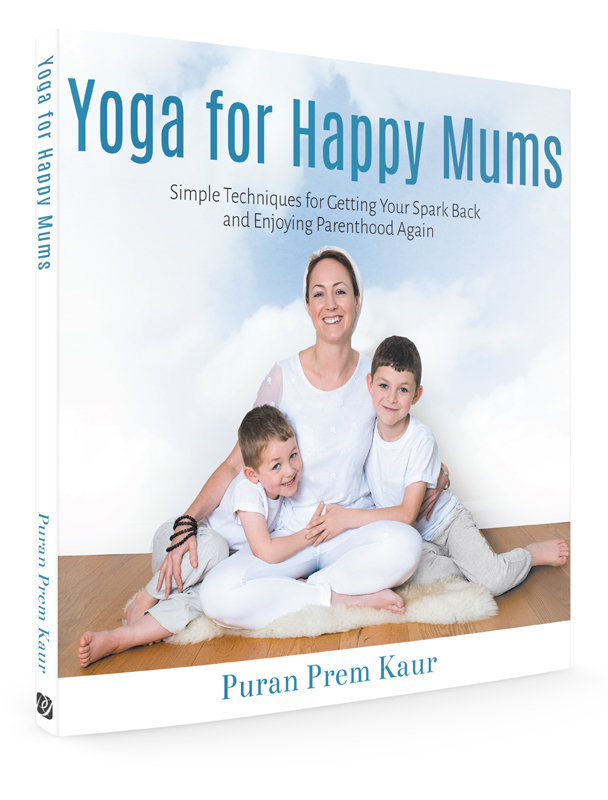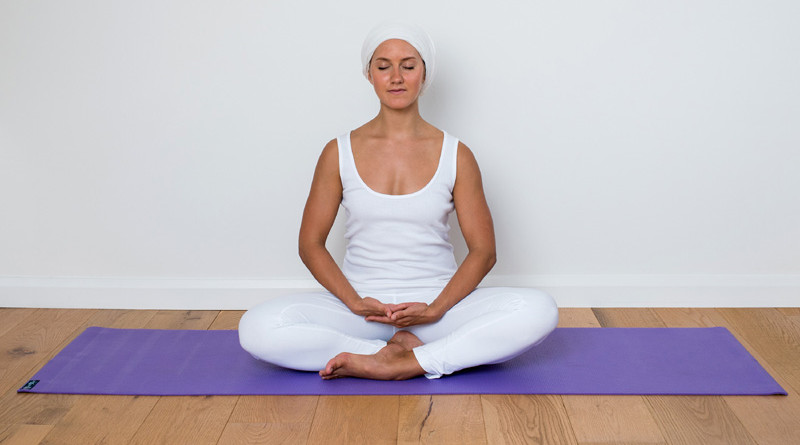PREVENT PARENTAL BURNOUT
Raising children can be physically, mentally and emotionally exhausting. Sleep deprivation and negative emotions like anxiety and guilt take their toll and can lead us down a slippery slope towards total burnout. But by incorporating a few simple Kundalini Yoga principles into our everyday lives, we can protect ourselves and tap into the natural energy sources that we carry within us.
1) Breathe better
Check your breathing whenever you remember during the day, even if it’s just for a minute or two. Are you breathing slowly and deeply through the nose, keeping the mind and emotions calm, or is your breathing shallow, creating unnecessary stress? Is the navel moving out on the inhale and in and up on the exhale? Are you exhaling completely before taking the next inhale? Wearing clothing that is loose around the navel makes breathing naturally with the diaphragm much easier! Breathing slower, from the navel area, vastly reduces the impact of stress on the body and mind. With practice, a healthier breathing pattern becomes automatic.
2) Correct your Posture
Whether you are standing or sitting, try to keep the spine straight whenever possible. Lift the chest, relax the shoulders and the abdomen, and tuck the chin in slightly so the neck is long. We can use a lot of energy just by holding tension in the body. Good posture is empowering and allows our natural energy to flow freely.
3) Practise relaxing
Whenever you get a few minutes to yourself, lie flat on your back with the spine straight and tuck the chin in slightly to keep that feeling of length in the back of the neck. Make sure you don’t have anything underneath the head or neck. With the arms relaxed by the sides, turn the palms up toward the ceiling. Mentally scan the body, starting with the toes and working your way up to the top of the head, and consciously relax any areas of tension. Learning to relax in this way teaches us how to manage stress. It releases rigid patterns we hold deep in our muscles and our blood flow.

4) Meditate regularly
Meditation promotes a sense of inner peace, well-being, stability and calm. It releases reactions and unconscious habits, subconscious fears and blocks, all of which can increase our stress response to particular events. It enables us to be more objective in our outlook, impervious to the effects of stressful situations.
It is only when we sit quietly and turn our focus inwards that we can appreciate just how much is going on in the mind at any one time. In Kundalini meditation there are always focus points to help; every time you notice your concentration has wandered, you can gently bring the attention back to the mantra, breathing practice or other points of focus the meditation uses. Just three minutes a day can make a big difference.
5) Be Kind to Yourself
The yogic principle of Ahimsa – usually translated as “non-harming” or “non-violence” – includes being compassionate towards ourselves. Parenting is tough and there are many ups and downs along the way for all of us. Much of the emotional turmoil comes from us putting too much pressure on ourselves: we wish we had handled a particular situation better, we worry about what the future holds for our children, we dwell on whether we have made the right decisions, and so on. Applying the principle of Ahimsa, we can stop being so mean and judgmental, and be proud of ourselves for all the great things that we do as parents. Whatever decisions we made in the past were the best ones we were able to make at that particular time. Make time to nurture yourself, even if it’s just for a few minutes a day. Invest in your mental and physical health with a simple daily Yoga routine and protect yourself from the effects of stress and burnout.

FACT BOX
Yoga for Happy Mums by Puran Prem Kaur (aka Emma Martin) is published by Practical Inspiration Publishing.

